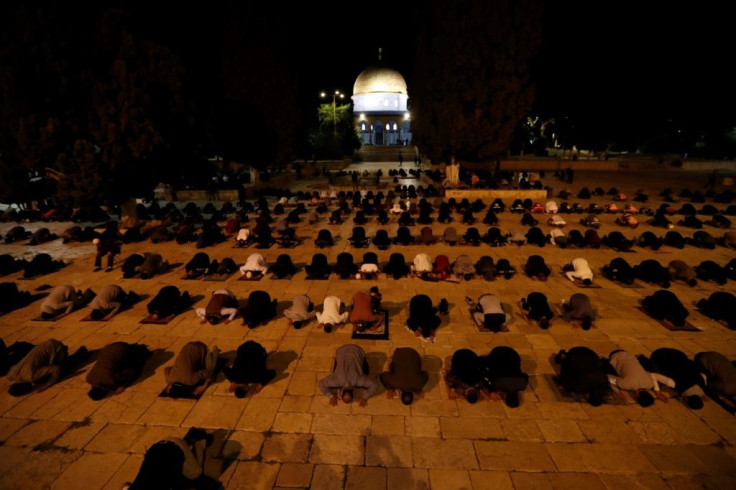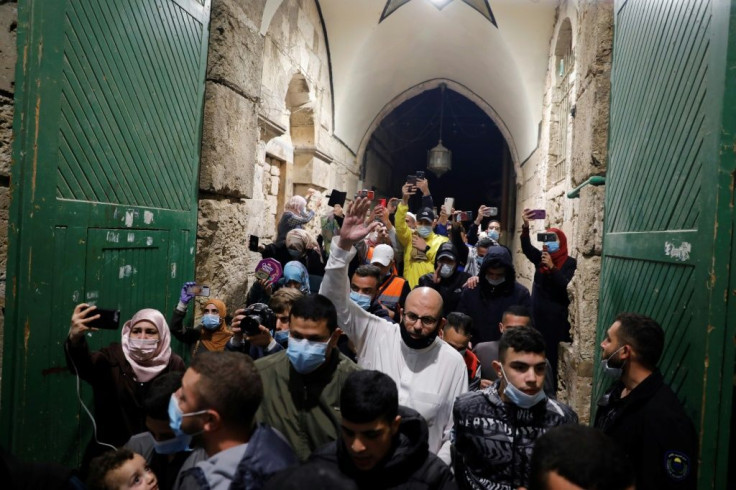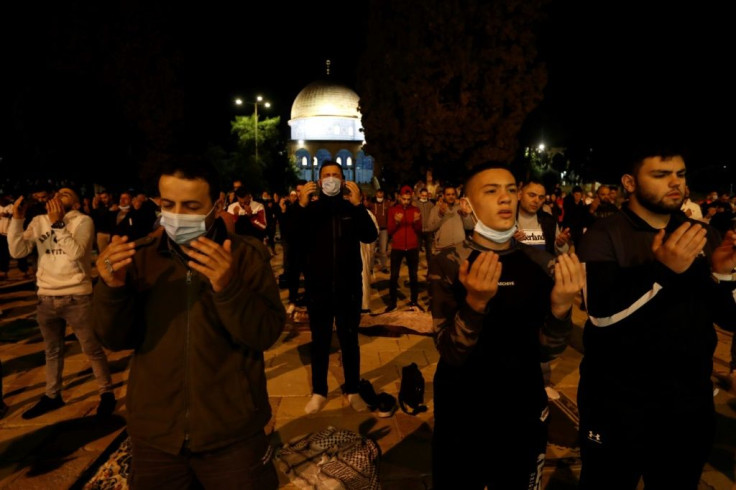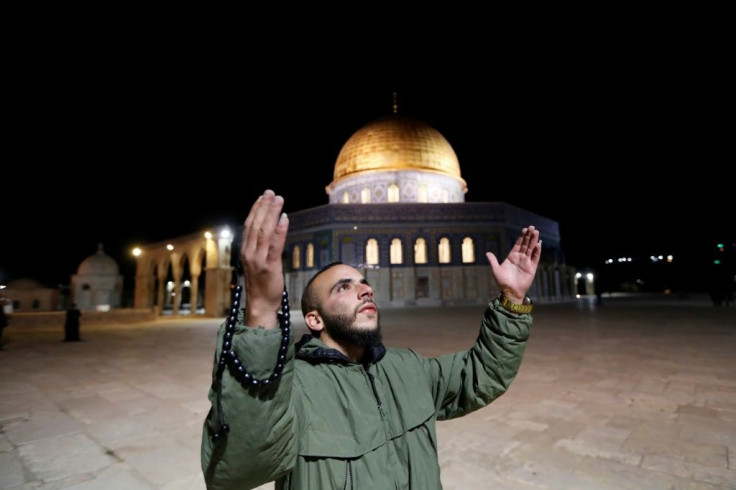Jerusalem's Al-Aqsa Mosque Reopens After Two Months Amid Tensions
Jerusalem's Al-Aqsa mosque compound, Islam's third holiest site, reopened Sunday after a more than two-month-long coronavirus lockdown, but tensions marred the event which came hours after a deadly police shooting.
Before dawn, worshippers in protective masks waited outside chanting "God is greatest, we will protect Al-Aqsa with our soul and blood", before they were let in for the first prayers of the day.

Israeli soldiers were stationed at the gates to the site, which has often been a flashpoint in the Israeli-Palestinian conflict, and police said eight arrests were made throughout the day.
A day earlier Israeli police shot dead a Palestinian disabled man in annexed east Jerusalem, where the compound is located. They mistakenly thought Iyad Khairi Hallak was armed and the killing prompted furious condemnation.
The Palestinian leadership demanded that the shooter face the International Criminal Court while the social media hashtags #PalestinianLivesMatter and #Icantbreathe echoed anger in the United States against police violence.

Eight Muslim residents were arrested by Israeli police Sunday at the religious site for "disrupting general visits" and chanting "nationalistic calls" against Jewish Israelis, said police spokesman Micky Rosenfeld.
The Al-Aqsa mosque and Dome of the Rock had been closed in March as part of measures to limit the spread of COVID-19, which has claimed 284 lives and infected more than 17,000 people in Israel.
Fewer than 500 infections and just three deaths have been confirmed in the occupied West Bank and Gaza, which have a combined population of around five million.

With the number of COVID-19 cases declining, restrictions have been eased in both Israel and the Palestinian territories.

As part of ongoing efforts to tackle the virus, worshippers' temperatures were taken and staff distributed masks. Tape on the floor inside the mosque and on the stones outside marked where people should pray at a safe distance.
Muslims believe the Prophet Mohammed ascended to heaven from Al-Aqsa, Islam's third holiest site after Mecca and Medina.
The location is also the holiest site for Jews, who refer to it as the Temple Mount, the reputed location of two biblical temples, the second of which was destroyed in 70 AD.
Saturday's shooting happened nearby, in the alleys of the walled Old City near Lions' Gate, an access point mainly used by Palestinians.
Defence Minister Benny Gantz said he was sorry for the death of 32-year-old Hallak and certain "the incident will be investigated swiftly" as police announced a probe.
"We will make every effort to use the appropriate amount of force, with the goal of reducing the amount of casualties as much as possible," said Gantz, who is due to become prime minister in 18 months under an agreement with current premier Benjamin Netanyahu.
Hundreds of people protested on Saturday evening outside the Jerusalem police headquarters and in Tel Aviv, carrying placards in Hebrew reading "Police violence kills" and "Justice for Iyad".
Earlier this month, scuffles broke out at Al-Aqsa between Israeli police and Palestinians worshippers who tried to break through barriers to enter the compound on the first day of the Eid holiday, which marks the end of the holy month of Ramadan.
Muslim leaders had asked worshippers to pray at home. At the time Firas al-Qazzaz, whose family has led prayers at Al-Aqsa for more than 500 years, told AFP that "for me as a muezzin, when I say at the end 'pray in your homes', it breaks my heart."
Known to Muslims as the Haram al-Sharif, the site is under the custodianship of neighbouring Jordan, which controlled the West Bank, including east Jerusalem, up until occupation by Israel in the Six-Day War of 1967.
There are fears of further violence if Israel takes advantage of a controversial green light from US President Donald Trump to annex swathes of the West Bank.
© Copyright AFP 2024. All rights reserved.





















